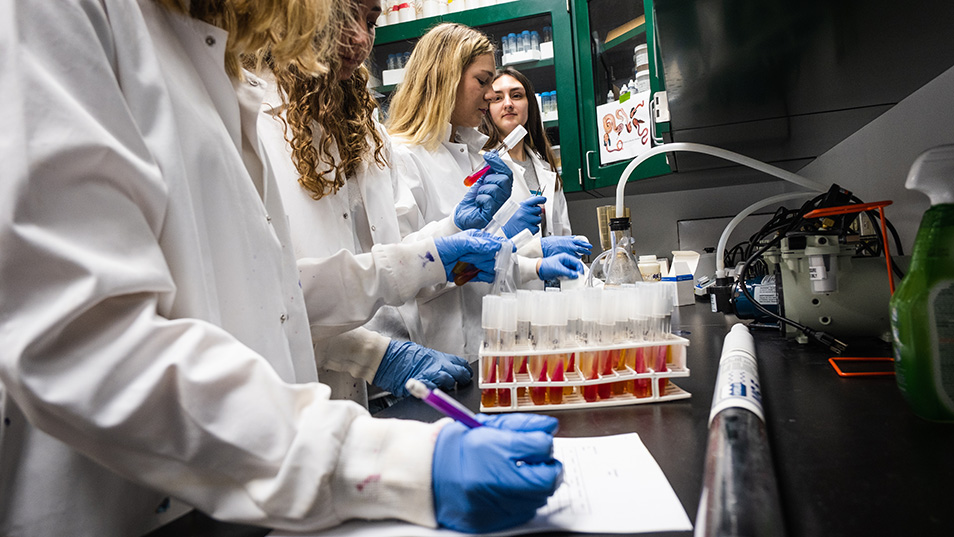Contact us
401 W. Kennedy Blvd.
Tampa, FL 33606-13490
(813) 253-3333
When Bridgette Froeschke, associate professor of biology, meets a new first-year student, she doesn’t just see the uncertainty in their eyes. She sees a load of potential. This perspective is one of the reasons Froeschke was named the 2022 Faculty Mentor of the Year by the Florida Undergraduate Research Association (FURA).

Bridgette Froeschke’s lab research focuses on water pollution in Tampa Bay.
When Bridgette Froeschke, associate professor of biology, meets a new first-year student, she doesn’t just see the uncertainty in their eyes. She sees a load of potential. This perspective is one of the reasons Froeschke was named the 2022 Faculty Mentor of the Year by the Florida Undergraduate Research Association (FURA).

“We do field work out in the environment, and my samples don’t always do what we think they should,” says Froeschke. “Being able to think through that and solve those problems gives them a leg up on most undergrads.”

“When they join my research lab, I tell them in the beginning — you are now part of my family, you are treated as a family member and you’re going to get as much attention as I can give you,” says Froeschke.
More UT News